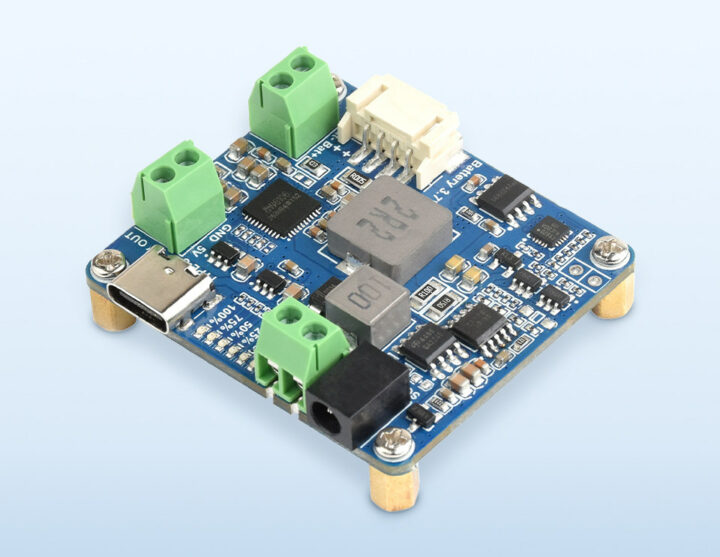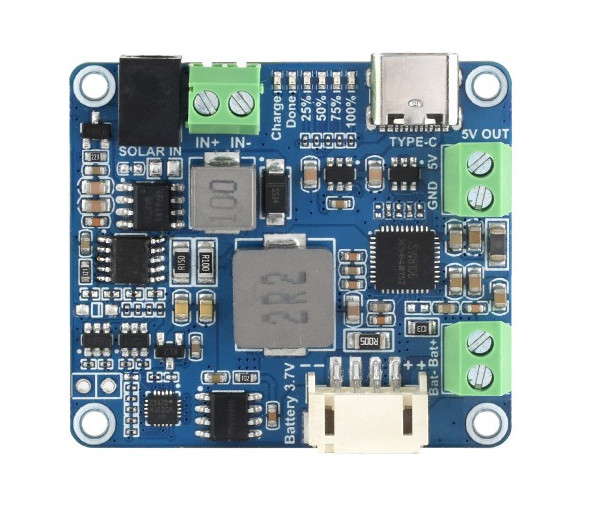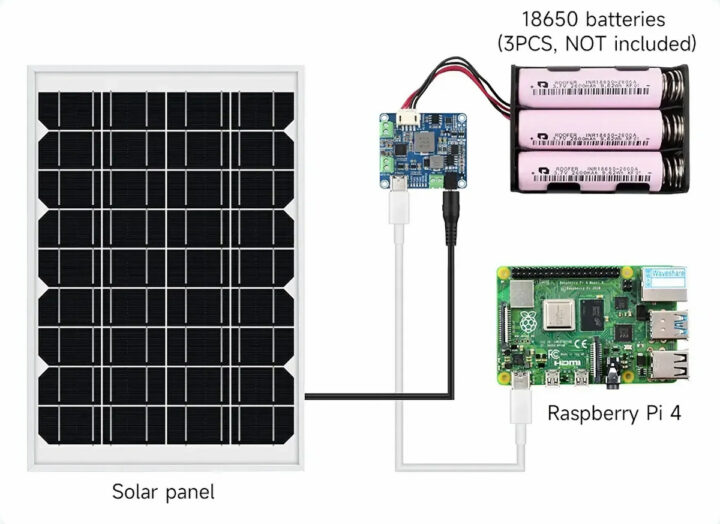Waveshare Solar Power Manager Module (D) is a compact power module for solar panels with support for 6V to 24V input, MPTT (Maximum Power Point Tracking), and battery charging. It outputs 5V up to 3A via a USB-C port or terminal block and should be suitable for a range of projects.
A few weeks ago, we wrote about the FireBeetle 2 ESP32-C6 IoT development board with DFRobot highlighting support for solar charging of lithium batteries thanks the the CN3165 chip. But with a range of just 4.5 to 6V for solar panel input and a lack of support for MPTT, several readers were unimpressed by the solution. The Waveshare Solar Power Manager Module (D) recently popped up in my news feed, and I thought it might be worth a look.
Waveshare Solar Power Manager Module (D) specifications:
- Solar panel input
- 6V to 24V via DC jack or 2-pole screw terminal with input reverse connection protection
- CN3791 solar power management chip with support for MPPT (Maximum Power Point Tracking) function to maximize the efficiency of the solar panel.
- USB Input – 5V up to 5A via USB-C port (USB PD support)
- 5V output – Up to 3A via screw terminal or USB-C port (Note: the USB-C port can be used as either 5V output or input)
- SW6106 USB power management chip for charging and 5V/3A boost output
- Battery support
- 3.7V Li-ion battery (an optional 18650 battery holder is available)
- Charging
- Via Solar panel, power adapter, or USB-C port
- Recharging cutoff voltage – 4.2V +/- 1%
- Solar panel charging efficiency – About 78%
- USB charging efficiency – About 93%
- Over discharging protection voltage – 3.0V +/- 1%
- Batteries boost output efficiency – About 90%
- Quiescent current (Max) – <2mA
- Misc – 6x LEDs to monitor charge status and levels
- Safety – Overcharge and over-discharge protection (using XB8886A), reverse, overheat, and over-current protection
The Wiki has a few more technical details including PDF schematics. It looks quite straightforward to use as shown in the diagram with a Raspberry Pi 4 below. Simply connect some batteries to the 4-pin JST connector, connect a solar panel to the DC jack or 2-pin terminal, and the target device to either the USB-C port or 2-pin 5V output terminal. As I understand it, it’s possible to charge the batteries through the USB-C port first if needed.
Waveshare is selling the Solar Power Manager Module (D) on Aliexpress for $17.99 including shipping, but most people might want to spend 90 cents extra to get a battery holder taking three 18650 batteries. While researching the topic, I also noticed some more basic (and cheaper) solar power modules based on the same CN3791 such as the Taidacent CN3791 solar charger going for $9.58 on Amazon.

Jean-Luc started CNX Software in 2010 as a part-time endeavor, before quitting his job as a software engineering manager, and starting to write daily news, and reviews full time later in 2011.
Support CNX Software! Donate via cryptocurrencies, become a Patron on Patreon, or purchase goods on Amazon or Aliexpress







